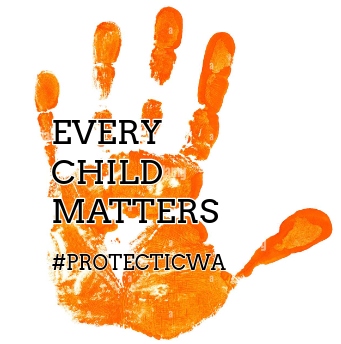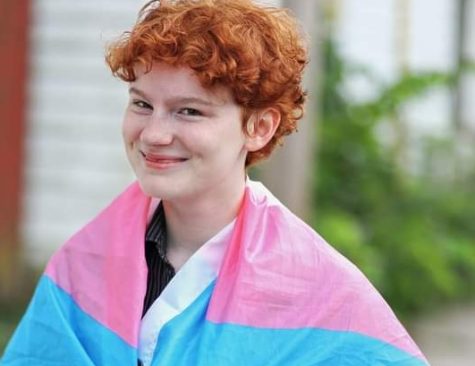The removal of the ICWA: A modern day genocide

May 8, 2023
In November of 2022, the Supreme Court reviewed the Brackeen v. Haaland court case, which challenges the Indian Child Welfare Act (ICWA). Implemented in 1978, the act has recently been challenged by a non-Native couple who attempted to adopt an Indigenous child. According to Circling Eagle Law, the couple in question criticized the Act for placing limitations on where Indigenous children can live and called the Act unconstitutional. This occurred after they had adopted a Navajo boy whose parental rights had been terminated and attempted to adopt his half-sister, who was already living on a reservation.
The ICWA restricts the adoption process for Indigenous children so that they are not wrongfully taken away from their tribes and cultures. Before the ICWA was implemented, it is estimated that anywhere from 25-35% of Native children were wrongfully taken away from their homes and placed into foster care or non-Native households. The ICWA was – and still is – necessary for Native Americans, as the effects of becoming disconnected from their cultural practices and beliefs has been clinically proven to severely harm their mental and physical well-being.
“Within a month, it’ll be the 2nd time in U.S. History that stealing Indigenous children from their tribes will be legalized across all 50 states,” says Tohono/Hia C-eḍ Oʼodham Indigenous content creator, oodhamboiii.
While the ICWA has been challenged before, it has never before been threatened like this. For the 40 years that the law has been in place, it has received widespread support from nearly 500 Native Tribal nations, Native organizations, congresspeople, child welfare organizations, and even state governments. The reason why this bill is so widely supported, especially by Indigenous American groups, is because the ICWA keeps Indigenous children safe. The reason why this Act was enacted is because Native children have been ripped away from their homes since 1492, and in the late 70’s, the Supreme Court signed the ICWA to prevent further theft of Indigenous children.
Now the ICWA is at risk of being overturned when it is reviewed again this upcoming June. Despite all the benefits the ICWA has provided, the Act is now being held above the heads of Native American households.
“Native children and U.S. Secretary of the Interior Deb Haaland are under legal attack in Brackeen v. Haaland,” says the Lakota People’s Law Project Action Center. “The powerful people behind the lawsuit include both Big Oil and the State of Texas. If their attempt to have a conservative-majority Supreme Court overturn the Indian Child Welfare Act is successful, the door will be open to the total elimination of tribal sovereignty.”
Reversing this act would not only be extremely anti-Indigenous, but a continuation of the widespread genocide Native Americans have been subjected to for over 500 years.
Susan Chavez Cameron, a First Nations Community Health Source for the Interamerican Journal of Psychology, states that genocide can be executed in more than one way in her article, “TEN STAGES OF AMERICAN INDIAN GENOCIDE”. While genocide is generally associated with mass murder, it also contains components of:
- causing serious bodily harm to targeted individuals;
- restricting the targeted populations’ ability to give birth;
- and forcibly separating children from said population to other groups.
While Native Americans have undoubtedly been subjected to all of these genocidal aspects, the ICWA specifically prevents the last one from happening. For centuries, Native children have been stripped away from their families and their tribal traditions, beliefs, and communities. This aspect of genocide started when colonizers enslaved Native Americans for labor hundreds of years ago, while they drove Indigneous people from their homes and slaughtered them if they didn’t comply. Then, colonizers stole Indigenous children from the families that survived the slaughter and enrolled them into residential schools from the mid-1600’s to the early 1900’s.
The thousands of Native children buried in the residential school graveyards are still being uncovered to this day. These schools only add onto the layers of multi-generational trauma that still affect Native American communities today. The ICWA prevents this tragedy from happening again, as the Act aims to keep Native children with their Native families – and it was only passed 45 years ago.
At the end of the day, the decision to overturn the ICWA is ultimately up to the Supreme Court. However, that doesn’t mean we need to stay silent about it; if anything, we need to be louder about this issue.
While you should care about the ICWA’s potential reversal no matter what your racial makeup is, this issue is especially dear to me, as someone with a biracial mother and an Indigenous grandfather living on a reservation. On May 10, 2023, I will be wearing orange in order to show my support for the ICWA. I encourage you to do the same, and I encourage you to be loud about it. Get decked out in orange and share it to social media with the hashtag #ProtectICWA – but don’t let this be the only thing you do, or else that’s performative activism.
The only people that seem to be bringing the ICWA’s potential reversal to light have been other Indigenous Americans. Non-Native allies need to show their support more than ever. To show your support for the ICWA, sign the Stop Stealing Native Kids, Protect ICWA petition. You can also sign up for the Protect ICWA Campaign Newsletter for updates about the Brackeen V. Haaland case, or share your support and/or personal experiences with the Indian Child Welfare Act to the Native American Rights Foundation. Share your support on social media stories and make posts to spread the word about how crucial the ICWA is for Native American children and their families. Subscribe to Native content creators, uplift Native activists, and support Native-run newsletters. Do whatever you can to spread awareness about this issue – otherwise, your silence is compliance.

